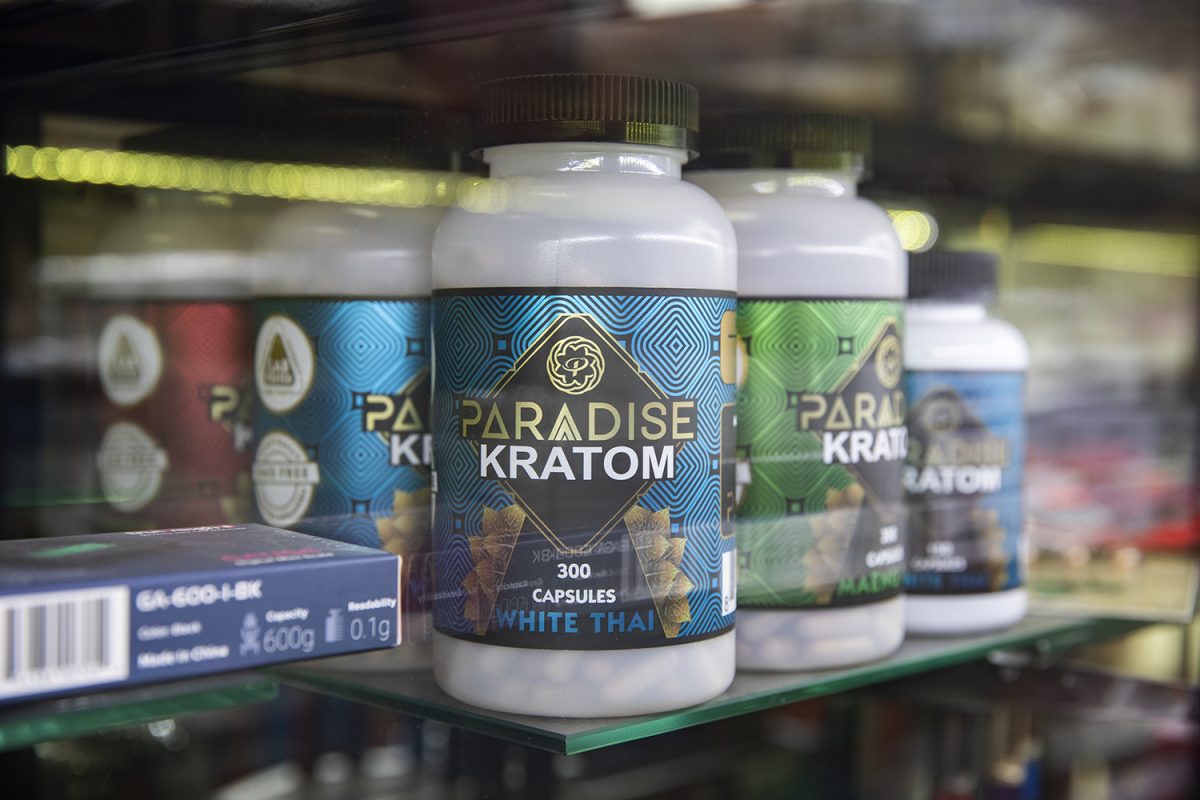In response to growing community concerns, Iowa City Councilor Andrew Dunn announced he will advocate for tighter regulation of kratom rather than an outright ban. The shift comes as the debate over the controversial herbal supplement, linked to both pain relief and potential health risks, intensifies locally.
“I have not secured majority support of the council yet but that is the direction that I’m going to be pursuing as the person who has been pushing for this,” Dunn said. “I think that it’s important that I acknowledge that, and I think it’s important for me to acknowledge that the community feedback matters.”
Councilor Megan Alter said she supports Dunn’s shift from banning kratom altogether to ensuring more uniformity with local tobacco permitting.
According to minutes from the Aug. 20 work session, the Iowa City City Council instructed staff to begin drafting language for a ban on kratom.
This comes amid other proposed tobacco regulations, including a moratorium on new licenses to combat rising youth tobacco use, with the city now considering a zoning law that could further limit new retailers after the moratorium ends in January 2025.
Even in its preliminary stages, the idea of banning kratom drew criticism from the community. Almost 500 people signed a change.org petition advocating against the ban since the petition’s creation on Aug. 8.
Kratom, an herbal supplement or tea derived from the leaves of a southeast Asian tree, is marketed as a mood enhancer, pain reliever, and aid for opioid withdrawal. However, the FDA has warned against its use, citing safety concerns and lack of proven effectiveness.
Mac Haddow, the Senior Fellow on Public Policy for the American Kratom Association, said that the main safety concern regarding kratom is its unregulated status.
Haddow criticized the FDA for spending 12 years labeling kratom as dangerous.
Dunn explained that the council initially felt caught in a “false dichotomy” of either allowing the sale of unregulated kratom in local smoke shops or imposing a complete ban.
“As I’ve discussed with business owners and people that utilize kratom for harm reduction, I’ve come to determine an all-or-nothing approach is not necessarily the best solution,” Dunn said, adding that he plans to pursue more uniformity with local tobacco permitting instead.
Kratom’s legal status in the U.S. remains complex. It is neither a prescription nor an over-the-counter drug, and it does not qualify as a dietary supplement or food under FDA guidelines. As a result, kratom is unregulated, meaning there is no oversight on product quality or uniformity.
The Drug Enforcement Administration sought to classify kratom as a Schedule I drug in 2016, but public backlash halted the move.
Schedule I drugs, the most serious classification by the agency, are defined as having a high potential for abuse with no accepted medical use. A wide range of substances — from marijuana to heroin — fall under the umbrella of Schedule I.
Currently, kratom remains classified as a “drug of concern,” and is banned in six states.
According to data provided by Alex Murphy, director of communications for the Iowa Department of Health and Human Services, the state’s Medical Examiner’s Office has reported 30 deaths since 2020 where kratom was either the sole drug or found in combination with other substances as the cause of death.
The data shows a notable increase in 2023, with 11 deaths reported, compared to six in 2020, five in both 2021 and 2022, and three so far in 2024.
Murphy clarified that not all deaths in the state go through the Medical Examiner’s Office, so the numbers may not be comprehensive.
RELATED: Iowa City Council moves toward zoning changes for new tobacco stores
He also provided statewide data from the Vital Statistics Bureau, which showed a decrease in kratom-related deaths, with 10 cases reported in 2020, 17 cases in 2021 and nine in 2022, totaling 36 cases over a three-year period.
While Haddow did not comment specifically on Iowa’s data, he said that deaths involving kratom often occur in cases of polydrug use—mixing multiple drugs or types of substances, including both illegal and legal substances.
“Typically, what happens is that you have individuals who are trying to get off of an opioid and they’re using kratom to wean off of that opioid. And along that journey, they fail, and they end up dying,” Haddow said.
He maintained the safety of pure kratom products and said that kratom-related deaths are often linked to adulterated kratom — meaning mixed or packed with a non-kratom substance. Haddow believes FDA regulation could help reduce such incidents by ensuring safer products.
Still, concerns remain about kratom itself, which has been linked to adverse health effects and even death. Just last year, 48-year-old Travis Gethmann of central Iowa died after becoming addicted to kratom, his family told KCCI, noting that his death certificate lists the scientific name for kratom as the cause of death.
While Haddow acknowledged that some individuals may develop a dependency on kratom, he compared it to dependencies on caffeine or nicotine, rather than more dangerous opioids.
However, Alison Lynch, director of the UI’s addiction and recovery collaborative, has seen firsthand how kratom use can lead to more serious dependency issues.
“Kratom has action that can be like an opioid, and also action that can be like a stimulant,” Lynch said. “Some people who use kratom can develop an opioid-like use disorder.”
Lynch said that patients who struggle with kratom dependency typically began using the substance to address pain or opioid substance use disorder. She said kratom dependency can be successfully treated using buprenorphine, one of the three FDA-approved medications to treat opioid use disorder.
Lynch said she is familiar with the purported benefits of kratom but does not recommend it to patients due to the lack of FDA regulation.
As the debate continues, Dunn remains focused on “achieving positive community outcomes” through regulatory measures that balance public health and community interests.



